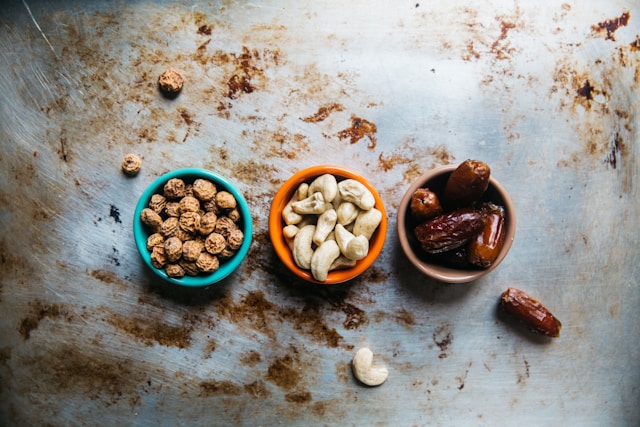Crucial Guidelines to Ensure Your Health During Ramadan in Dubai

Ramadan is the ninth month of the Islamic calendar and is observed by Muslims worldwide as a month of fasting, prayer, reflection and community. In Dubai, Ramadan takes on special significance as a time when Muslims focus on spiritual renewal, self-improvement, and strengthening bonds between family and friends.
During Ramadan, Muslims fast from dawn to dusk – abstaining from foods, drinks, and certain behaviors. Fasting is one of the Five Pillars of Islam and allows Muslims to practice self-discipline, sacrifice, and empathy for the less fortunate. Special nightly prayers called Taraweeh are also held in mosques after Iftar meals.
In Dubai, most restaurants and cafes are closed during daylight hours but reopen at sunset for Iftar. Families and friends gather daily to break their fasts together with specially prepared meals. Work hours are often shortened to allow people adequate rest and hotels make special Ramadan accommodations for tourists.
Importance of maintaining a healthy lifestyle during Ramadan
Fasting all day during Ramadan can take a toll on your health if proper nutrition, hydration, and rest are not maintained. It’s important to adapt your lifestyle to make healthier choices that provide long-lasting energy, allow adequate water intake, and support the spiritual goals of this holy month.
Eating well-balanced Iftar and Suhoor meals, staying hydrated between fasts, spacing out food intake, choosing nutritious snacks, avoiding excessive caffeine, and getting enough sleep are keys to staying healthy during Ramadan in Dubai’s hot climate. Exercising moderately after Iftar can also help maintain fitness levels.
Making smart lifestyle choices will give your body the strength and endurance needed to fast while allowing you to focus on the sacred purpose and blessings of Ramadan. Consulting a nutritionist or doctor in planning diet and exercise regimens can also help you tailor a healthy Ramadan routine.
Guidelines for Nutrition During Ramadan in Dubai
Proper nutrition during Ramadan centers around Suhoor, the pre-dawn meal, and Iftar, the meal eaten after sunset to break the fast. Suhoor should provide slow-digesting foods that release energy steadily to sustain you during long summer fasting hours. Complex carbs, fiber, protein, healthy fats, and antioxidants are key Suhoor nutrients.
Iftar is best started by eating dates and drinking water or milk to help replenish blood sugar and rehydrate your body after a day of fasting. After this initial rehydration, it’s important to avoid overeating by spacing out courses, starting with fruits and vegetables, then protein dishes, eating carbs last. Soups aid digestion.
Getting enough fluids is vital between Iftar and Suhoor to avoid dehydration and dizziness. Nutrition experts advise consuming 8-12 glasses of water during this period. Fluids can also come from milk, laban, fresh juices and moderate amounts of caffeine-free herbal teas.
Guidelines for Fitness During Ramadan in Dubai
Engaging in exercise and sports during Ramadan can be challenging but offers many health benefits if done properly. With long summer fasting hours, it’s best to exercise after Iftar when energy levels rise after eating and drinking fluids.
Light to moderate intensity is recommended, including walking, cycling, swimming, strength training without heavy weights, Pilates and gentle yoga flows. More intense cardio and high-impact workouts should be avoided to prevent dehydration, dizziness or injury.
Allow two to three hours after Iftar before starting exercise so your body can properly digest. Take frequent sips of cool water during and after workouts to stay hydrated. Reduce exercise duration during Ramadan to 20-30 minutes most days.
Adjust your fitness regimen to complement Ramadan fasting. Shorter, less intense post-Iftar workouts can help you maintain strength and flexibility without taxing your system too much through reduced calorie and water intake during daylight hours.
Suggestions for incorporating soups into Iftar for better digestion
Consuming soup is highly recommended during Iftar to improve digestion impacted by fasting all day. Serving a bowl of soup towards the start of your meal enables you to break your fast gradually rather than eating heavy foods right away.
Soup helps ensure proper hydration as your body starts receiving fluids and nutrients again. Hot soup can also give you a comforting feeling while cooling soup helps rehydrate you. Stick to healthy vegetable, lentil or chicken soups instead of cream-based options.
Good soup choices for Iftar include lentil, vegetable, chicken broth or potato soup. You can also try regional favorites like harira, a savory Moroccan soup containing lentils, chickpeas, lamb and tomatoes. Soup stimulates digestive juices to help break down solid foods eaten later during Iftar.
Balance your Iftar meal by starting with soup, followed by healthy salads, grilled meats, whole grains and yogurt. Stop eating before you feel full to avoid indigestion. This allows your stomach time to reactivate its digestive functions that have been dormant all day.
General Tips for Maintaining Health During Ramadan in Dubai
Here are some additional ways to stay healthy while fasting in Dubai during Ramadan:
- Minimize intake of coffee, black tea and caffeinated soft drinks which can dehydrate your body.
- Break your fast initially with dates and water to stabilize blood sugar and rehydrate.
- Go for fresh fruits and vegetables when choosing Ramadan snacks.
- Keep some nuts, seeds, dried fruits or whole grains on hand for quick mini-meals.
- Have a nourishing late-night snack before bedtime prayers to avoid waking up hungry.
- Go to bed early enough to get at least seven to eight hours of sleep before Suhoor.
- Try natural fruit juices or coconut water instead of sugary beverages.
- Boost your immune system with vitamin C-rich produce like oranges, strawberries and kiwi.
- Following these healthy living guidelines
during Ramadan in Dubai will help energize your days of fasting while supporting spiritual growth. Hydrating properly, eating nutritious Iftar and Suhoor meals, spacing out food intake, minimizing caffeine and getting adequate sleep are key to avoiding hunger, fatigue and headaches while fasting.


